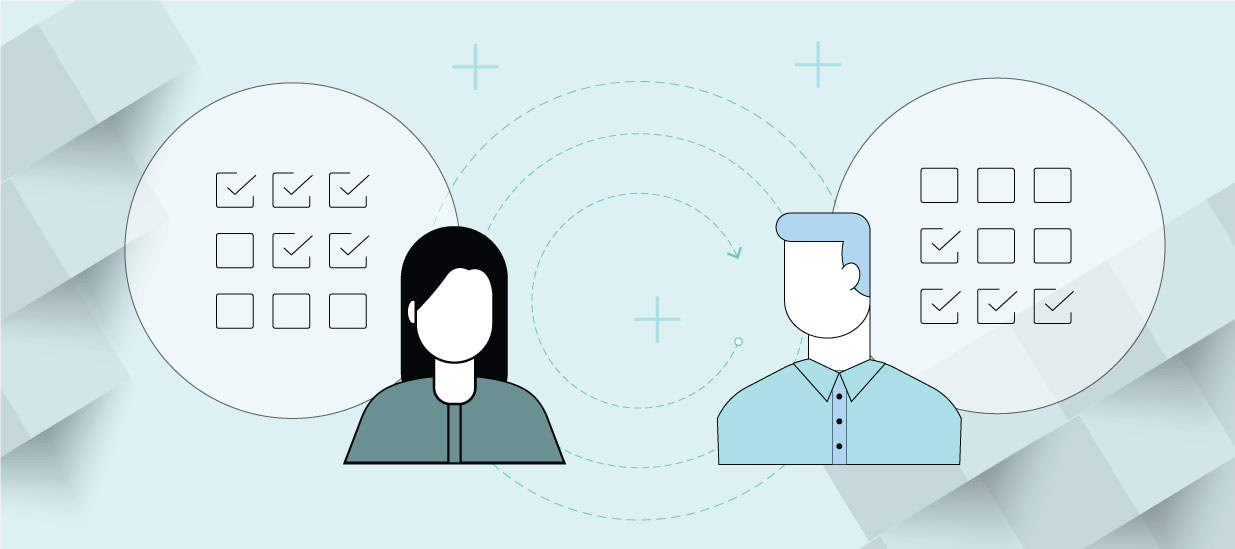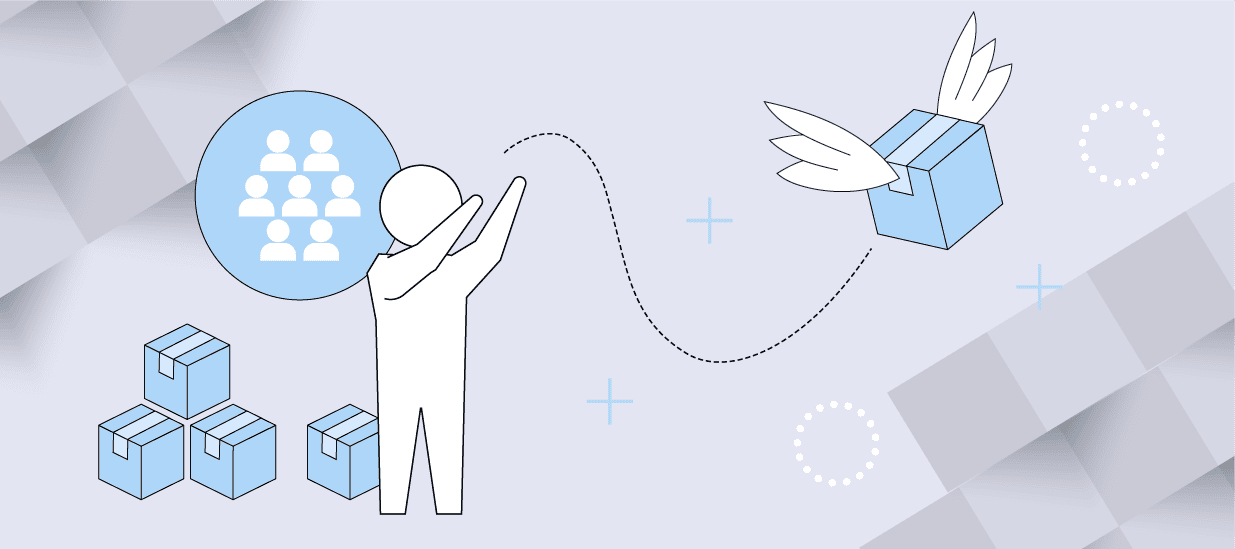8 minute read
As a certified product manager, you have a range of exciting career opportunities available to you. From entry level positions to emerging, specialized roles, this article covers some of the options available.
Creating the products we know and love requires teams of people, with the product manager being the key link that holds the entire process together. This dynamic position helps guide products through all the various phases they take along the way. As you can imagine, working in this position requires a wide range of skills that is difficult to curate without targeted training.
Once you have gone through your product manager training, however, there are many product manager jobs and related positions you may be qualified to pursue. Let’s look at some of the roles you may want to explore as a certified product manager.
What is a Certified Product Manager?
Certified product managers are professionals that have completed formal training and passed a certification exam in product management. This certification demonstrates their mastery of essential product management skills, such as market analysis, product lifecycle management, strategic planning and cross-functional leadership. This credential is recognized in the industry as a mark of expertise and commitment to the field of product management.
Learn more about becoming a certified product manager in this guide.
Why Pursue Product Manager Training ?
Product manager training goes beyond basic credentials; it provides you with essential skills like strategic planning, customer research and project management. These are critical skills for navigating the complexities of product development and effectively managing a product’s lifecycle. Employers value this training because it demonstrates your readiness to take on the challenges of product management. And in general, having professional development on your resume improves your chances as a candidate.
In a competitive job market, the right training can be the key to securing and excelling in your desired role. This can be particularly powerful when combined with outside experience and expertise. For example, if you come from a technical background, adding product manager training to your skillset can set you up for success as a product manager for technical products.
Entry-Level Jobs
Starting your career in product management typically involves roles that help you build foundational skills. These entry-level positions immerse you in the basics of product management and show you how things work within a functioning organization. They also allow you to gain valuable experience and work alongside experienced professionals.
Product Coordinator
What They Do: Product Coordinators play a supportive role in the product management process. They are responsible for organizing the various tasks that keep a product on track from development to launch.
Responsibilities: This role involves coordinating between teams, tracking project timelines and ensuring that everyone is on the same page. Product Coordinators often assist with gathering and analyzing data, preparing reports and maintaining communication across departments.
Learn more by exploring Product Coordinator roles
Associate Product Manager
What They Do: Associate Product Managers (APMs) work closely with senior product managers to help manage the lifecycle of a product. They are often involved in everything from initial market research to the final product launch.
Responsibilities: APMs assist in defining product requirements, conducting customer research and working with engineering teams to ensure that product features align with market needs. This role is an excellent stepping stone toward becoming a full-fledged product manager.
Learn more by exploring Associate Product Manager roles
Mid-Level Jobs
After gaining experience, you can move into mid-level roles where you take on more responsibility and have a greater impact on the products you manage. These roles require a greater understanding of product management principles and a strategic mindset.
Product Manager
What They Do: Product Managers are at the heart of product development. They oversee the creation of products from the initial idea to the final release and beyond.
Responsibilities: This role requires defining product strategies, setting priorities and working with cross-functional teams to develop products that meet customer needs. Product Managers must balance customer demands, business goals, and technical constraints to create successful products.
Learn more by exploring Product Manager roles
Product Marketing Manager
What They Do: Product Marketing Managers (PMMs) act as a bridge between product development and the marketplace. They focus on how products are presented to customers.
Responsibilities: PMMs are responsible for developing go-to-market strategies, creating marketing plans and ensuring that product features are effectively communicated to the target audience. It is also common for PMMs to work closely with sales teams to make sure that the product’s value is clearly understood by potential customers.
Learn more by exploring Product Marketing Manager roles
Senior-Level Jobs
As you advance in your career, you may take on senior-level roles that require extensive experience and leadership skills. These positions involve overseeing teams and setting the strategic direction for entire product lines.
Senior Product Manager
What They Do: Senior Product Managers lead major product initiatives within an organization. They often manage multiple products or a large product line.
Responsibilities: This role involves setting long-term product strategies, mentoring junior product managers and ensuring that all products under their supervision align with the company’s overall goals. Senior Product Managers are also responsible for managing budgets and resources effectively.
Learn more by exploring Senior Product Manager roles
Director of Product Management
What They Do: Directors of Product Management oversee the entire product management department within an organization.
Responsibilities: In this role, you would set the strategic direction for the company’s product portfolio, manage multiple teams of product managers and ensure that all product efforts align with the company’s business objectives. Directors often work closely with other executives to shape the company’s vision and ensure that product development supports overall business strategies. This role is for those interested in a leadership position.
Learn more by exploring Director of Product Management roles
Specialized Roles
In addition to generalist roles, product management offers opportunities to specialize in areas that align with your skills and interests. Specialized roles often require a deeper understanding of specific technical or market aspects.
Technical Product Manager
What They Do: Technical Product Managers (TPMs) focus on the technical aspects of product development. They work closely with engineering teams to ensure that the technical side of product development aligns with business goals.
Responsibilities: TPMs are responsible for translating business requirements into technical specifications, managing the product development lifecycle from a technical perspective and ensuring that products are built to meet both customer needs and technical standards.
Learn more by exploring Technical Product Manager roles
UX Product Manager
What They Do: User Experience, or UX Product Managers, focus on the user experience (UX) aspect of product development. They ensure that products are intuitive, user-friendly and meet the needs of the target audience.
Responsibilities: UX Product Managers collaborate closely with designers and researchers to gather user insights, define UX strategies, and oversee the design process. They help make sure that the end product functions well and delivers a seamless and satisfying experience for users.
Learn more by exploring UX Product Manager roles
Consulting and Advisory Roles
Consulting and advisory roles allow you to share the benefit of your experience with many companies. This is, however, only possible once you have extensive product management experience. These roles involve providing strategic advice and helping organizations optimize their product management practices.
Product Management Consultant
What They Do: Product Management Consultants advise companies on best practices for product development and management. They often work with multiple clients across different industries.
Responsibilities: As a consultant, you would assess a company’s product management processes, recommend improvements, and help implement changes. Consultants often provide training and support to in-house teams and may be involved in high-level strategy development.
Product Strategy Advisor
What They Do: Product Strategy Advisors offer high-level advice to companies on how to align their product development with market trends and business goals.
Responsibilities: This role involves working closely with executives to shape the strategic direction of the company’s product offerings. Advisors help identify market opportunities, recommend product strategies, and ensure that the company’s products meet the needs of their target markets.
Startups
Product management skills are invaluable in the startup world. Whether you’re leading a product team in a startup or founding your own company, these roles require versatility and a deep understanding of both product development and business strategy.
Product Management in Startups
What They Do: In startups, Product Managers often take on multiple roles, balancing product development with other business needs.
Responsibilities: This role involves managing the entire product lifecycle, from concept to launch, while often handling other business responsibilities such as marketing and sales. Product Managers in startups need to be adaptable so they can take on all the challenges that come their way.
Emerging and Niche Roles
As technology evolves, new opportunities in product management continue to emerge. These roles often require specialized knowledge and the ability to innovate in cutting-edge fields.
AI/ML Product Manager
What They Do: AI/ML Product Managers focus on products that incorporate artificial intelligence and machine learning technologies.
Responsibilities: This role involves working with data scientists and engineers to develop AI-driven products that solve complex problems. AI/ML PMs need to understand both the technical and market aspects of these technologies to bring successful products to market.
Sustainability Product Manager
What They Do: Sustainability Product Managers focus on developing environmentally friendly and sustainable products.
Responsibilities: This role involves ensuring that products meet sustainability standards, from sourcing materials to production processes. Sustainability PMs also work on aligning product development with corporate social responsibility goals and responding to consumer demand for green products.
Becoming a certified product manager can help unlock numerous career paths, from entry-level roles to senior leadership positions. Whether you want to cross over from your current career, specialize in a technical area, or set yourself up for a leadership position, training and experience can equip you with the skills and knowledge to succeed. And as the field of product management continues to grow and evolve, having a certification is likely to become increasingly valuable. By investing in continued education and training, you can expand your skills, keep up with the latest trends and stay competitive.
Author
-

The Pragmatic Editorial Team comprises a diverse team of writers, researchers, and subject matter experts. We are trained to share Pragmatic Institute’s insights and useful information to guide product, data, and design professionals on their career development journeys. Pragmatic Institute is the global leader in Product, Data, and Design training and certification programs for working professionals. Since 1993, we’ve issued over 250,000 product management and product marketing certifications to professionals at companies around the globe. For questions or inquiries, please contact [email protected].
View all posts








